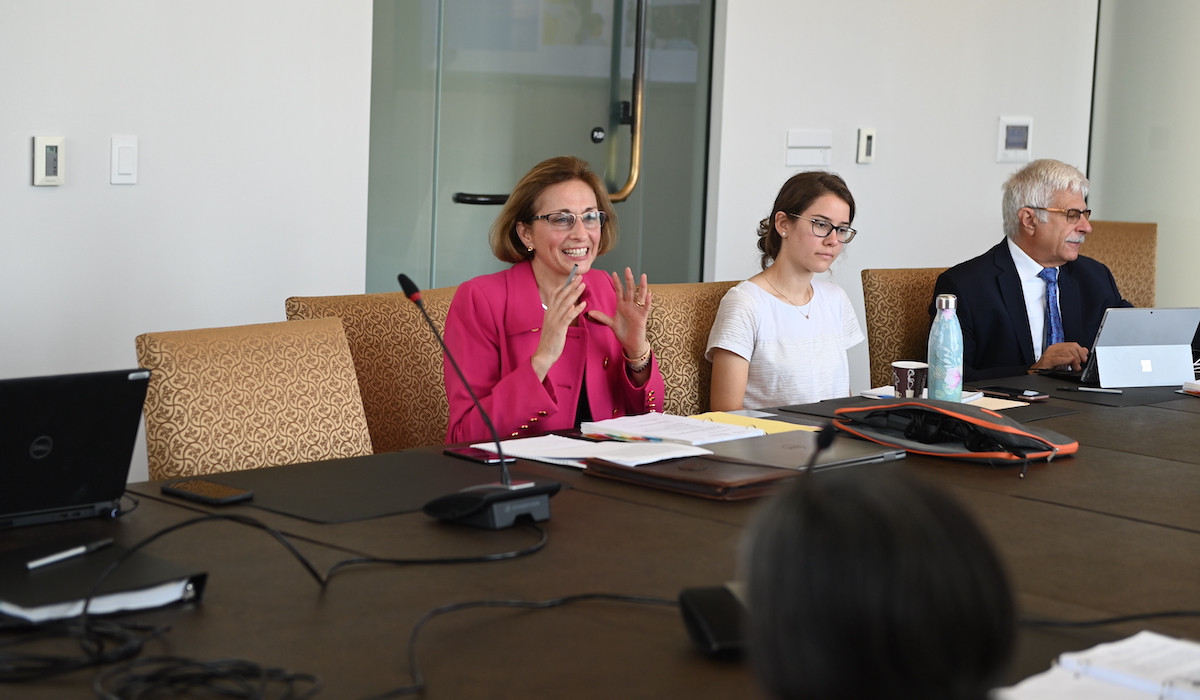

The Department of Economics hosted a working meeting Sept. 22-23 highlighting the research of faculty and other experts on the societal influence of the home and family on displaced peoples.
The number of migrants worldwide continues to grow, amounting today to an estimated 339 million migrants and displaced people - which is an all-time high. The results of the collaborative research presented at the “Home and Displaced Peoples” meeting will be published in a book intended to influence policymakers.
Professor of economics Maria Sophia Aguirre, who has researched and published theories on population, resources and family in relation to economic development, said having the meeting at the University is significant because the issue is “an important topic that is very much aligned with our mission as a research Catholic institution that seeks to advance the dialogue between faith and reason.’”
The event was supported by the Home Renaissance Foundation, a think tank that works to promote and develop recognition of the work required to build a thriving home, and the Social Trend Institute, an independent non-profit research center that supports academics seeking to make sense of social trends and their effects on human communities.
Aguirre, who has been collaborating with the work of the Home Renaissance Foundation since 2005, said the topic of this expert meeting was not only timely, but also relevant to the work carried out by the Integral Economic Programs in the Department of Economics, where student research and evaluations measure levels of social and civic responsibility and consider the interrelated nature of individuals, families, and communities.
Monsignor Roberto Vitillo, secretary general of the International Catholic Migration Commission, said during a keynote address at the meeting that “in order to understand the vision and experience of home among displaced persons, I believe we need to step aside from our roles or status as experts.”
“We also need to place our minds, our hearts and our souls in the treacherous, uncertain, exhausting and fear-filled journeys that they take,” said Monsignor Vitillio.
The meeting featured other University faculty including Sandra Barrueco, professor and director of clinical training; Robert Destro, director of the Institute for Policy Research and a professor of law; as well as many other scholars, field workers and policy designers working and researching in the field of migration and displaced peoples. Each participant presented different areas of research involving migration and the concept of “home.”
“All of these people can influence policies,” Aguirre said. “They are either working on this field, researching issues in this field, or they are policy makers.”
Kelly Ryan, migration and refugee expert, presented research on “Building Home in Immigration Integration and Inclusion Policies and Initiatives,” which she conducted with Heather Salfrank Joseph, project manager for the USCIS Interagency Naturalization Working Group. They concluded in their research document that “strong local community, social support and deep interpersonal connections form the cornerstone for successful immigrant integration and inclusion.”
Other presentations from participants included information on digital impacts in home-making, human rights in relation to displaced people, investment ventures that can benefit refugees and research on home life and familial experiences of migrant and seasonal farm workers in the United States.